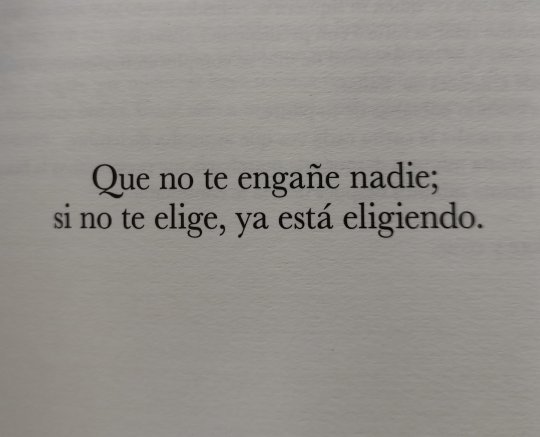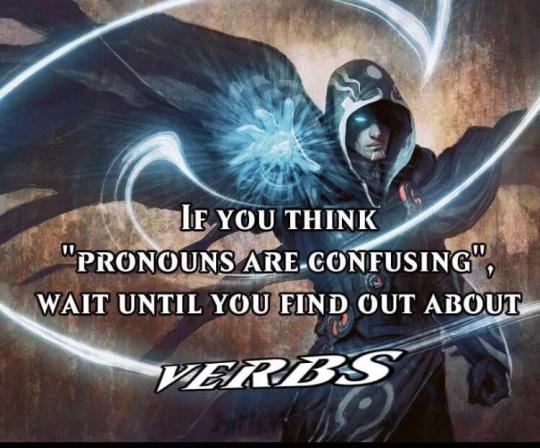#verbs
Text
50 WORDS TO USE INSTEAD OF “SAID”
Do you ever find yourself over-using the word “said” in your writing? Try using these words/phrases instead:
stated
commented
declared
spoke
responded
voiced
noted
uttered
iterated
explained
remarked
acknowledged
mentioned
announced
shouted
expressed
articulated
exclaimed
proclaimed
whispered
babbled
observed
deadpanned
joked
hinted
informed
coaxed
offered
cried
affirmed
vocalized
laughed
ordered
suggested
admitted
verbalized
indicated
confirmed
apologized
muttered
proposed
chatted
lied
rambled
talked
pointed out
blurted out
chimed in
brought up
wondered aloud
(NOTE: Keep in mind that all of these words have slightly different meanings and are associated with different emotions/scenarios.)
#words to use instead of#said#words#writing prompt#prompt#writing#prompts#writing prompts#creative writing#writing advice#verbs#verb#word#synonym#synonyms#writing tip#writing tips#writing help#word choice#writer
63K notes
·
View notes
Text
Writing advice that changed my sentence
When I was a young writer, I was told that I often started my sentences with "there is/there was/there are." I was told to eliminate those as much as possible.
I couldn't believe how often I used them. My first novel was completely littered with them.
I learned to diversify and grow my use of verbs. Instead of the state-of-being verbs, like "is" which isn't very descriptive at all, I started using stronger verbs.
Instead of writing "There were a bunch of trees on the hill" I wrote "A cluster of trees towered over the hill."
"Towered" is a much stronger verb than "Is"
Use the state-of-being words, but if you can, try replacing them with more active verbs. You might be surprised how much your writing improves.
12K notes
·
View notes
Text
switch up your verbs (part one) ~
walked
- hiked
- moved
- shuffled
- toddled
- sauntered
- ambled
- tiptoed
- meandered
- strolled
laughed
- chortled
- chuckled
- giggled
- snorted
- guffawed
- howled
- snickered
- shrieked
wanted
- ached for
- wished
- craved
- coveted
- fancied
- pined
- aspired
ran
- sprinted
- galloped
- scampered
- bolted
- trotted
- dashed
- raced
- jogged
jumped
- bounced
- hopped
- leapt
- hurtled
- vaulted
- barged
- bounded
#writing prompts#writerblr#lyralit#creative writing#writers#writblr#writing#writers block#writing ideas#writing tips#verbs
21K notes
·
View notes
Text
Back-forming verbs from surnames based on obsolete professions is always fun. Like, the surname "Shrudler" is ultimately derived from the Middle English shriden, "to ornament or decorate (clothing)", which implies that if the term hadn't fallen out of use, the modern word for making clothing fancy would be "to shrudle". I enjoy that very much.
#language#linguistics#word nerdery#nameology#english#verbs#back-formation#etymology#speculative etymology
2K notes
·
View notes
Text

richard serra
list of verbs for making art
426 notes
·
View notes
Text
10 Verbal Nouns in Irish that I very much enjoy
Ag Smúrthacht - prowling, slinking around the place
Ag Airneán - staying up late into the night
Ag Plobarnach - gurgling (of water or porridge)
Ag Santú - ‘greeding’ for something (((also to desire seggsually)))
Ag Slaparnach - trudging around/through shallow water/mud
Ag Spréacharnach - glittering
Ag Rógaireacht - swindling or otherwise engaging in divilment
Ag Pleidhcíocht - fooling around, messin’
Ag Goilliúint - wounding emotionally
Ag Meabhrú - brooding or pondering
warning: 🚨not caighdeán approved🚨 (also these are rough estimations of meanings and there are 100% other verbs which cover these same things please dont break my tibia)
#gaeilge#irish language#brooding#ponderings#language#linguistics#swamp#ireland#irish#northern ireland#insomia#vocabulary#new vocab#porridge#river#prowl#i love the caighdeán pls give my family back#verbs#celtic languages
269 notes
·
View notes
Text
I learned it's easier to learn verbs in their ない form first, vs. their dictionary form first. Makes recognizing the difference between Godan and Ichidan verbs 100% easier and removes the need to "remember" the "hidden/fake/lying" verbs that parade as the other verb type. The trick to doing it is far easier and I hate how Genki teaches it in the book.
Leaving me with only having to learn the conjugation patterns for Ichidan, Godan, and Irregular verbs. Far, far easier.
#learning japanese#fountain pen#jlpt#jlpt n5#kanji#japanese#日本語#senchastudying#studying#studyblr#langblr#language#fountain pen ink#見#Verbs#Japanese Verbs#Japanese Vocabulary#japanese langblr
265 notes
·
View notes
Text
Word for today: droplifting
The act of sneaking things into a store so they look like they’re on sale, typically as an artistic statement or joke, such as the work of Obvious Plant
I’m SO glad to find out there’s a word for this
72 notes
·
View notes
Text
The 然's
突然,虽然,忽然. and the other 然's can often get mixed up, so here's a quick explanation of some of the most common ones!
突然 (Túrán): This means suddenly or unexpectedly
居然 (Jūrán): This kind of means suddenly, but more in the sense of "surprisingly" or to suggest disbelief at something that happened.
忽然 (Hūrán): This also means suddenly or unexpectedly, but it has a more stronger connotation.
既然 (Jìrán): This is a conjunction meaning "since" or "now that"
既然the weather is great, let's go out!
既然 you aren't busy, let's go watch a movie.
不然 (Bùrán): This means "otherwise" or "or else";
You should study, 不然 you won't do well on the exam.
虽然 (Suīrán): This means although or even though.
虽然 I'm not good at singing, I still like to go to the karaoke.
当然 (Dāngrán): 当然 means certainly or definitely and can be used as a reply:
Can you help me with A? 当然!
自然 (Zìrán): This can mean nature or naturally.
China's 自然 is very beautiful.
She speaks Chinese 得很自然.
仍然 (Réngrán): This can mean "still" or "yet".
I仍然 haven't read that book.
依然 (Yīrán): Similar to 仍然, this also means still" or "yet" but it's usually used in more formal and literary works, whereas 仍然 is more often used in spoken language.
果然 (Guǒrán): 果然 can be used to mean "indeed" or "as expected"
This movie is 果然 interesting.
竟然 (Jìngrán): This is an adverb used to suggest surprise or something unexpected.
He竟然forgot her birthday.
显然 (Xiǎnrán): This means "clearly" or "obviously".
This soup 显然 hot.
偶然 (Ǒurán): This means "accidentally" or "by chance".
We 偶然 met at the same cafe.
How many other 然's do you know about? Drop a comment!
#slavic roots western mind#student life#student#study blog#college#college life#travel blog#aesthetic#studyblr#study motivation#chinese#china#study in china#life in china#learn chinese#chinese grammar#grammar#vocabulary#chinese vocabulary#chinese verbs#verbs#verb#chinese studyblr#mandarin langblr#mandarin#mandarin chinese#chinese language#language learning#chinese langblr#language resources
72 notes
·
View notes
Text
Vibrant Alternatives for Movement Verbs
Writing a novel involves more than just crafting a compelling story. The language you use plays a critical role in engaging your reader and enriching your narrative. A common pitfall for many writers is the repetitive use of verbs like “go” or “went.” To help you diversify your vocabulary and add depth to your writing, here are some dynamic alternatives:
Travel
Perfect for describing journeys, whether they are short trips or long voyages. It adds a sense of adventure to your narrative.
Move
This versatile verb can be used for physical movement from one location to another, adding a general sense of action.
Proceed
Ideal for continuing action in a story, especially when moving towards a specific aim or along a set path.
Advance
Use this when you want to evoke progress or forward movement, adding a dynamic layer to your storytelling.
Specific Movements: Walk, Run, Jog, Dash
Each of these offers a clear picture of the speed and style of movement, allowing you to create more vivid scenes.
Modes of Transport: Drive, Ride, Fly, Sail
When characters use vehicles or animals to move, these verbs can specify the mode of transportation, enhancing clarity and immersion.
Depart
This implies leaving a place with purpose, which can be particularly useful in scenes of separation or transition.
Head
A casual yet descriptive way to indicate direction, often used in spoken language within dialogues.
Journey
For a grander scale of travel, “journey” implies a significant undertaking, enriching the narrative with a sense of scale and importance.
Wander
To wander is to move without a fixed path. It’s great for scenes where characters are exploring or lost.
Migrate
Useful in stories involving large-scale movements or seasonal changes, especially in historical or environmental contexts.
Meander
When you want to describe a leisurely or aimless path, “meander” evokes a gentle, wandering pace.
Trek
This suggests a challenging and lengthy travel, often on foot, perfect for adventure or survival stories.
Roam
To roam means to move freely, ideal for characters that are free-spirited or in expansive settings.
Leisurely Paces: Stroll, Saunter, Amble, Perambulate
Each of these terms paints a picture of a calm, relaxed walk, adding a poetic touch to your scenes.
Using these verbs can transform your narrative from mundane to vivid, providing your readers with a clearer image of your characters’ actions and settings. Don’t hesitate to experiment with these alternatives to find the perfect fit for your story’s tone and pace.
Happy Writing!
For more fun content, visit our Slaying Fiction website!
#writing#writer#fiction#novel writing#writeblr#writing advice#tumblr writers#writing community#writing tips#creative writing#slaying fiction#verbs#writing reference#writers on tumblr
30 notes
·
View notes
Text

Repite conmigo...
#quotes#pienso en versos#frases#textos#chats#phrases#verbs#verdades#ojito#red flags#elegir#casi algo
124 notes
·
View notes
Photo

Here is a sign on a motorway in Ireland, I’m guessing somewhere near Kilcullen. It says Maraíonn Tuirse [mar-EE-in TIRR-sheh], which does indeed mean “tirednes kills” but there’s a problem.
The English verb “to kill” can be transitive or intransitive. “Transitive” means that it takes an object. It’s a fancy term for a verb that has to do something to something else.
“John killed Paul”: the killing is happening to Paul, and therefore the verb is transitive.
“John killed every night”: the killing is sort of left hanging in the air. Either he is massacring people indiscriminately or he is absolutely smashing his residency at the comedy club. The verb is intransitive.
Maraíonn is the the third-person present tense of the verb maraigh [MAR-igg]. It means “to kill” and it is a transitive verb. It takes an object. It has to do something to something else.
On the sign it’s just sort of left hanging there so when you’re zooming down the motorway, your first response is “kills what?”
169 notes
·
View notes
Text
Diary entry 383
ho visto questo esercizio sui verbi e m'è piaciuto per cui voglio provare con un multilingual post (anche perché i verbi in spagnolo: non pervenuti per me -ma pure in francese ormai... dispersi)
ENG - ITA - KOR - FRA - ESP
verb: to eat, mangiare, 먹다, manger, comer
I eat
Io mangio
저는 먹어요
Je mange
Yo como
I ate
Io ho mangiato/mangiai
저는 먹었어요
J'ai mangé/mangeai
Yo he comido/comí
I will eat/I am going to eat
Io mangerò/sto per mangiare
저는 먹을 거예요
Je mangerai/vais manger
Yo comeré/voy a comer
I am eating
Io sto mangiando
저는 먹고 있어요
Je suis en train de manger
Yo estoy comiendo
I was eating
Io stavo mangiando
저는 먹고 있었어요
J'étais en train de manger
Yo estaba comiendo
I want to eat
Io voglio mangiare
저는 먹고 싶어요
Je veux manger
Yo quiero comer
I can eat
Io posso mangiare
저는 먹을 수 있어요
Je peux manger
Yo puedo comer
I have to eat
Io devo mangiare
저는 먹어야 해요
Je dois manger
Yo tengo que comer

#polyglot#multilingual#diary#languages#korean#learning korean#french#spanish#english#italian#verbs#verbs conjugation
32 notes
·
View notes
Text
10 Additional Words to Love
Here are ten more words I found to be helpful. May they help or inspire you on your writing adventures!
Abase (Verb)- To lower in esteem, degrade, to humble. To behave in a way that belittles or degrades someone or yourself.
Brazen (Adj)- Bold and without shame. Made of brass.
Chasten (Verb)- To have a restraining or moderating effect on.
Demure (Adj)- Sober or serious in manner. Reserved.
Flair (Noun)- A special or instinctive aptitude or ability for doing something well. Stylish and originality.
Harangue (Noun)- A lengthy and aggressive speech. (Verb)- To lecture someone in an aggressive and critical manner.
Lissome (Adj)- Thin, supple, graceful.
Morass (Noun)- An area of muddy or boggy ground. A complicated or confusion situation.
Opaque (Adj)- Not able to be seen through; not clear or lucid; dense, stupid.
Wily (Adj)- Skilled at gaining an advantage, especially through deceit. Sly, cunning
#vocabulary#writeblr#writers of tumblr#word choice#word list#list of vocab#list of words#adjectives#nouns#verbs#grammar#definitions#vocab#writeblur#words#writing community
142 notes
·
View notes
Text



IDs in alt!
Symbols for 'struggle', 'can't', and then the phrase 'I can't do stairs'! The intention with the symbol for 'can't' is that it can be edited to depict things on the square, making it easy to edit into symbols for phrases, like the stairs one here!
#Emojis#Custom emojis#petrichoremojis#Verbs#Phrases#Idiosyncrasy's tag#Struggle#Can't#I can't do stairs
32 notes
·
View notes
